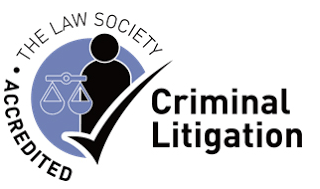Notice of Intended Prosecution
Have you received a Notice of Intended Prosecution or have you been charged with an offence of failure to identify a driver/failure to nominate a driver/failure to furnish information?
When a vehicle is suspected of being involved in an offence, the police will check with the DVLA to ascertain the Registered Keeper (RK) of the vehicle.The Police will then send a Notice of Intended Prosecution (NIP) to the RK, asking them to complete a form identifying the driver of the vehicle at the time of the alleged offence and to return it within the time frame specified in the NIP (usually within 28 days).
Failure to identify the driver (sometimes known as failure to nominate a driver/failure to furnish information) within the requisite time limit, is in itself a criminal offence that will lead to court proceedings and carries a sentence of 6 penalty points, a fine, court costs and a victim surcharge. This means that the correctly completed and signed NIP must be posted back so that it can be received by the police within the time limit. We recommend that you always return the form by a method of post that provides you with a proof of posting, such as registered post, as hundreds of thousands of items of post get lost every year.
How should you complete the form?
First of all, you should only reply to a NIP that is addressed to you. A common example illustrates this situation:
Your company receives a NIP relating to your company car, after they have been nominated by a lease hire company (who are the RK). Rather than passing it to you to respond, it is the legal obligation of the company to complete, sign and return their NIP form. They will identify you as the driver and you will subsequently receive your own NIP to which you must respond.
When you receive a NIP addressed to you, you should first check the vehicle details and the location and time of the alleged offence. NB Completion and return of a NIP form is not an admission of guilt and you should respond even if you were the driver but don’t accept the allegation!
• If you were the driver, you should tick the appropriate box, complete all the requested information such as name, address and driving licence number. Most importantly, you must sign and date the form. If an incorrectly completed and or unsigned NIP form is returned, then you are likely to be prosecuted for failing to identify the driver.
• If you were not the driver, you should tick the appropriate box and complete the form with the drivers details, sign, date and return it.
• If you are a hire company you should you should tick the appropriate box and complete the form enclosing the lease/hire agreement, sign, date and return it.
• If you were not in fact the RK or owner at the time of the alleged offence because you had sold/purchased or disposed of the vehicle before or after the alleged offence, you should tick the appropriate box, indicate the date of sale or purchase, complete the details of the owner/RK at the time of the alleged offence, sign, date and return it.
Not all NIPS are in the same format but you are obliged by law to respond in the manner requested by the individual constabulary. Most people will be able to navigate the NIP and complete it correctly in the four circumstances outlined above. However, NIPs do not make it very clear how to respond if your situation is different.
What if your vehicle was not at the location of the alleged offence at the relevant time and date?
On reading the NIP you may realise that at the time of the alleged offence, the vehicle couldn’t have been at the alleged location (maybe it was on the other side of the country or parked safely in your garage!) It is possible that your vehicle has been cloned and it is the cloned vehicle that was at that location at that time and you should raise this issue with the police immediately.
I would suggest that first of all you should call the police number on the NIP, explain the situation and request photographic evidence. The police are not obliged to provide you with that evidence prior to a case going to court but often they will do. In any event you will be able to take a record of your call and that you have raised potential cloning at an early stage. Often cars will have individual distinguishing features such as dealer stickers and if provided, photographic evidence should show the rear of the vehicle and reg plate.
If you are certain that it wasn’t your vehicle, then I would suggest that you sign and complete the declaration on the NIP but instead of ticking one of the boxes, write “see attached letter”. Then attach a letter setting out where your vehicle actually was at the relevant time, enclosing a photograph of the rear of your vehicle and any evidence you may have as to the vehicles actual location and that of you and any other potential drivers of your vehicle, at the relevant time.
Make sure that you send these documents with the signed NIP back to the police within the 28 day time limit. If the police still decide take you to court for failing to identify the driver in these circumstances, you will be able to call any witnesses and other evidence at court to demonstrate the actual location of your vehicle and indeed yourself and other potential drivers at the relevant time. The Police will have to prove that it was your vehicle, rather then a cloned vehicle at the relevant location at the relevant time.
What do I do if the Police have made an error on the NIP?
You have probably heard a lot about “loopholes” when it comes to motoring law. However, don’t get too excited if you find a minor clerical error on the NIP such as a misspelling of location. Such errors can be often corrected in court under the “slip rule”. The NIP will only be subsequently deemed void if it is accepted that the error is likely to have prevented you from making enquiries to identify the driver. It is a question of fact and degree whether you have been misled or prejudiced by an error on the NIP and if you find an error that you think could render the NIP void, you should obtain legal advice at that stage and of course, be mindful of the time limit to return the NIP form.
What if I didn’t receive the NIP within 14 days of the alleged offence?
The police must be able to prove that in the normal course of events, the NIP would have arrived at the last known address of the RK within 14 days.
This means that the 14 day rule will not apply when the NIP is late because of unusual events such as a postal strike, because the DVLA have not yet processed a change of RK details or because the RK has failed to update the DVLA with a change of address.The 14 day rule only applies to the first NIP that is sent to the RK. So firstly you need to be sure that you are indeed the RK. Many motorists think that they are the RK, when in fact the RK is actually their employer who provides them with a company car or a lease hire company. In that event you should check with the RK whether they received the NIP within 14 days.
If you believe that the Police have not complied with the 14 day rule, you should still correctly complete, sign and return the NIP form within the required time period or face prosecution for failing to provide the drivers details. However, if you believe that the Police didn’t comply with the 14 day rule, you can attach a letter to that effect. If the police still take you to court for the original alleged offence, you will be able to argue that you should not be convicted on the basis of the 14 day rule.
What if I don’t know who was driving the vehicle at the relevant time?
If you are the RK, you will have a defence if you can show that you did not know and could not with reasonable diligence have ascertained who the driver of the vehicle was. I suggest that you sign and complete your personal details on the NIP form and return it within the time limit. Attach a letter setting out how you have exercised due diligence and why you are unable to identify the driver.
“Reasonable diligence” means that you have explored all avenues available to you to try and find out who was driving. For example:
• Checking your personal/work diaries to work out where you would have been at the relevant date and time
• Checking bank or credit card statements for purchases made on the relevant date that might narrow down your location and ask other potential drivers to do the same
• Speaking to everyone who is insured to drive the vehicle or has access to it and find out where they were and if they could have been driving on the relevant date
• Providing names, addresses and contact details of anyone you suspect may have been driving the vehicle
Despite these enquiries, if you cannot identify the driver then the police are likely to charge you with failure to identify the driver but if the court accept that you exercised reasonable diligence, you will be found not guilty. If you are identified by someone else as the driver and receive your own NIP, then you will have a defence if you give any information to the police which it is in your power to give and may lead to identification of the driver.
What if I never received the NIP or if the Police didn’t receive my reply?
If you are charged with failure to identify the driver in these circumstances, you will avoid a conviction if the court accept that the NIP did not arrive at your address. You may be able to put forward evidence of an ongoing issue with post going missing. Similarly, if you did send back the correctly completed and signed NIP form within the requisite time limit and the police didn’t receive it, you will avoid a conviction if the court believe that you did so. Clearly, proof of posting should be definitive in support of this defence.
What if I provide false information in response to the NIP?
This is never a good idea. If it comes to light that you gave false information, you will almost certainly be charged with perverting the course of justice. This is an offence that almost always carries a sentence of imprisonment, even if you were previously a person of good character

Have a question about notice of intended prosecution?
contact us today!
If you’d like to book an appointment
or would simply like to speak to one of
our solicitors, please fill in the your
details and we’ll get right back to you.
We look forward to learning how we
can help you!
Have a question about notice of intended prosecution?
contact us today!
If you’d like to book an appointment
or would simply like to speak to one of
our solicitors, please fill in the your
details and we’ll get right back to you.
We look forward to learning how we
can help you!




















